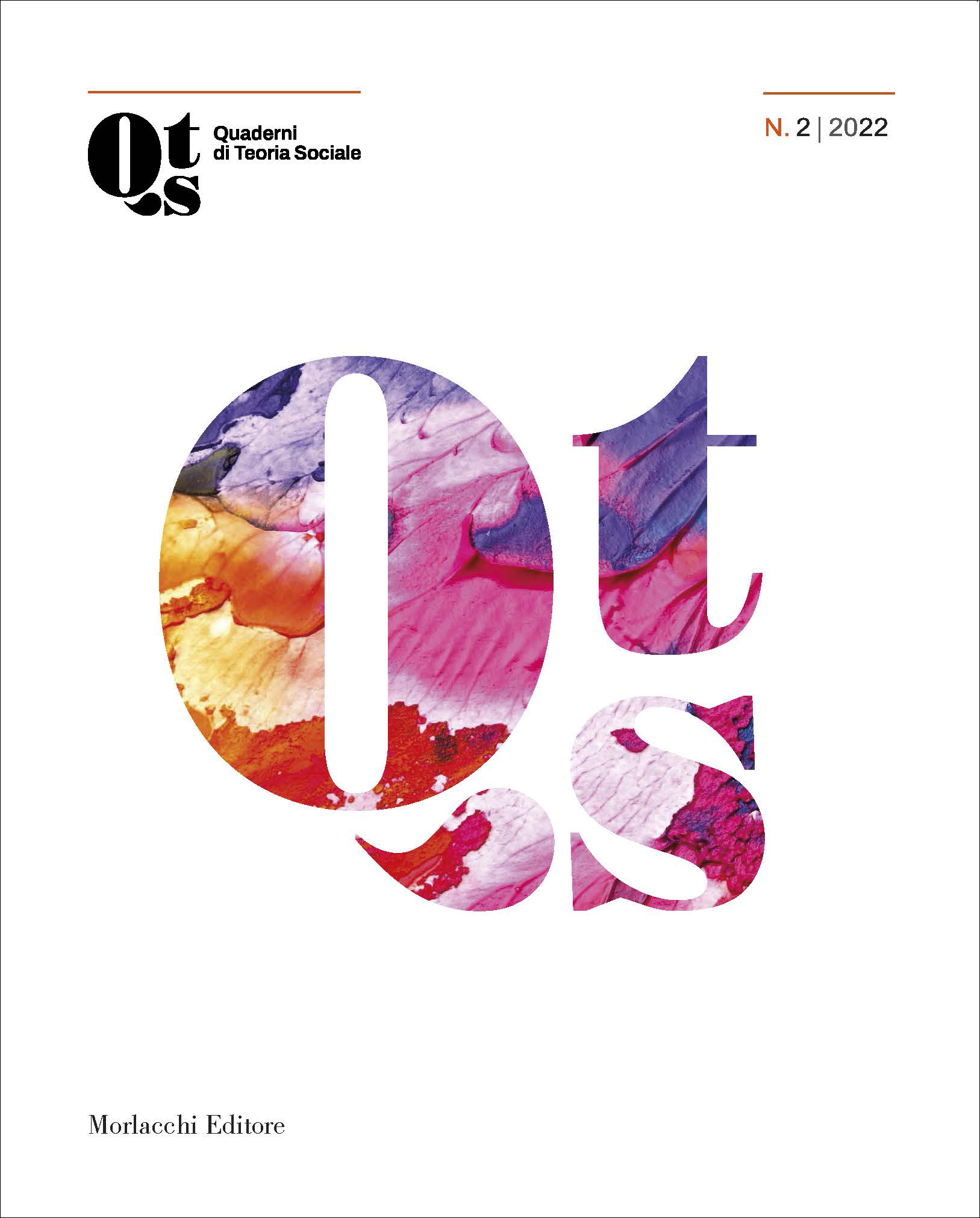La razionalità neoliberista e gli ecosistemi digitali: ideologia, narrazioni, immaginari
DOI:
https://doi.org/10.57611/qts.v1i2.180Parole chiave:
Neoliberalism, Communicative ecosystems, ImaginaryAbstract
The article analyses the development of neoliberalism, also in the light of communicative ecosystems. Starting from the concept of neo-liberalism as global rationality, the essay attempts to identify the characteristics of the neo-liberal narrative that, increasingly, tends to take the form of imaginary. In this scenario, neoliberalism - thanks to global élites, including media élites - asserts itself by fragmenting the public sphere and saturating every aspect of public discourse. One of the repercussions of the neoliberal imaginary is the neoliberalisation of the state or, again, its transformation into an “asocial stat”, in which even the individual dimension of the subject is reduced to extemporaneous forms of de-subjectivised individualism.
Riferimenti bibliografici
Arruzza, C., Bhattacharya, T., Fraser, N.
, Femminismo per il 99%. Un manifesto, Laterza, Roma-Bari.
Blokland, T.
, Community as Urban Practice, Polity, Cambridge.
Boyd-Barrett, O.
, Media Imperialism, Sage, London.
Boyd-Barrett, O., Mirrlees, T.
, Cultural and Media Imperialism, Rowman & Littlefield, Lanham.
Brown, W.
, American Nightmare: Neoliberalism, Neoconservatism, and De Democratization, Political Theory, 34, 6, pp. 690-714.
Cingari, S.
, La meritocrazia, Ediesse, Roma.
Colombo, F.
, Il potere socievole. Storia e critica dei social media, Bruno Mondadori, Milano.
Crouch, C.
, Postdemocrazia, Laterza, Roma-Bari.
Dahlgren, P.
, Television and the Public Sphere: Citizenship, Democracy and the Media, Sage, London.
Dardot, P., Laval, C.
, La nuova ragione del mondo. Critica della razionalità neoliberista, Derive Approdi, Roma (nuova ed. 2019).
, Del Comune, o della Rivoluzione nel XXI secolo, Derive Approdi, Roma.
, Guerra alla democrazia. L’offensiva dell’oligarchia neoliberista, Derive Approdi, Roma.
Davis, A.
, Political Communication: A New Introduction for Crisis Times, Polity, Cambridge.
De Blasio, E., Sorice, M.
, Populisms among Technology, e-democracy and the Depoliticisation Process, Revista Internacional de Sociología, 76, 4, e109. https://doi.org/10.3989/ris.2018.76.4.18.005
, Technopopulism and Direct Representation, in P. Blokker, M. Anselmi (eds.), Multiple Populisms. Italy as Democracy’s Mirror, Routledge, London, pp. 127-47.
Flinders, M., Wood M.
, Depoliticisation: Principles, Tactis and Tools, British Politics, 1, 3, pp. 293-318.
Fraser, N.
, Cosa vuol dire socialismo nel XXI secolo, Castelvecchi, Roma.
Fuchs, C., Mosco, V.
, Introduction: Marx Is Back. The Importance of Marxist Theory and Research for Critical Communications Studies Today, in triple C: Communication, Capitalism and Critique, Journal for a Global Sustainable Information Society, 10, 2, pp. 127-140.
Gramsci, A.
, Quaderni del carcere. Edizione critica dell’Istituto Gramsci, Einaudi, Torino.
Harvey, D.
, A Brief History of Neoliberalism, Oxford University Press, Oxford.
Keane, J.
, Democracy and Media Decadence, Cambridge University Press, Cambridge.
Kelsen, H.
, Difesa della democrazia, in Id., Sociologia della democrazia, Edizioni Scientifiche Italiane, Napoli, pp. 41-50 (1932).
Kwet, M.
, Digital Colonialism: US Empire and the New Imperialism in the Global South, Race & Class, 60, 4, pp. 3-26.
Jin, D. Y.
a, Digital Platforms, Imperialism and Political Culture, Routledge, London.
##submission.downloads##
Pubblicato
Fascicolo
Sezione
Licenza
Copyright (c) 2022 Michele Sorice

Questo lavoro è fornito con la licenza Creative Commons Attribuzione - Non commerciale 4.0 Internazionale.
<a rel="license" href="http://creativecommons.org/licenses/by-nc/4.0/"><img alt="Licenza Creative Commons" style="border-width:0" src="https://i.creativecommons.org/l/by-nc/4.0/88x31.png" /></a><br />Quest'opera è distribuita con Licenza <a rel="license" href="http://creativecommons.org/licenses/by-nc/4.0/">Creative Commons Attribuzione - Non commerciale 4.0 Internazionale</a>.






